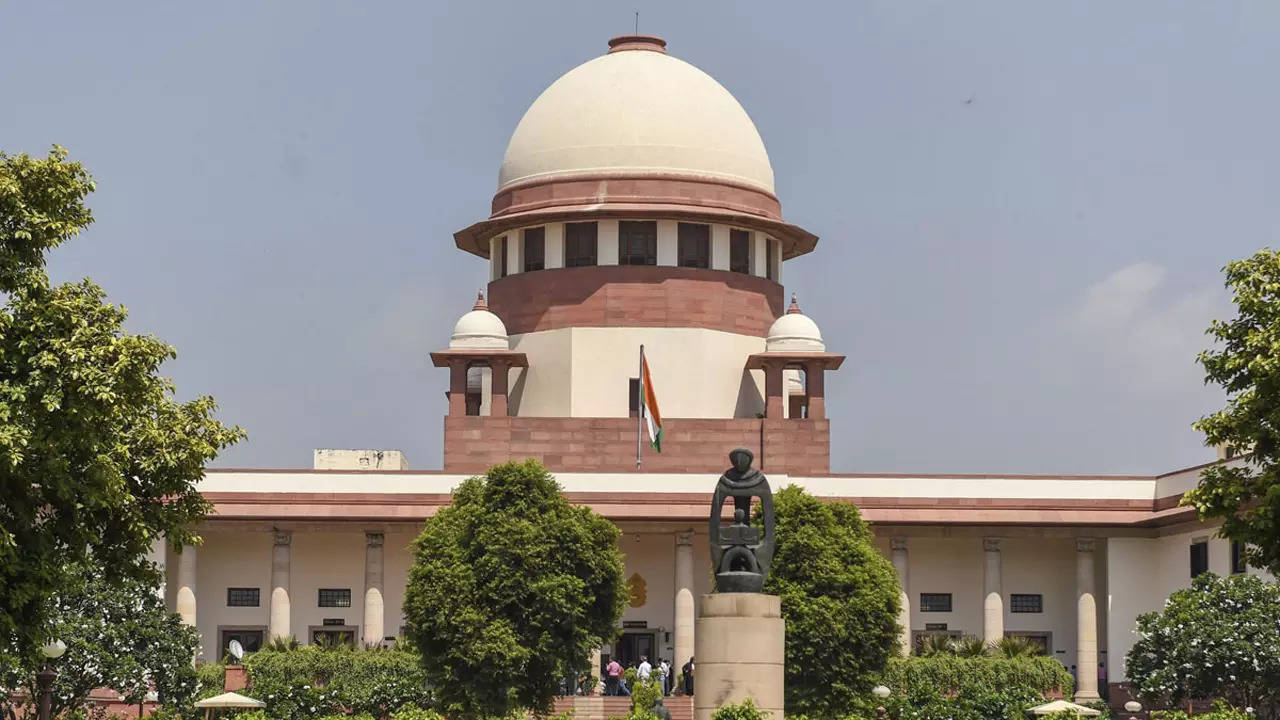NEW DELHI: The Supreme Court on Monday referred a clutch of petitions seeking legal recognition of same-sex marriage to a five-judge constitution bench.
The hearing on the petitions would commence from April 18.
The Centre has said it is for Parliament to decide whether same-sex marriage could be statutorily recognised.
On Sunday, the Centre submitted an affadavit in the apex court opposing the pleas seeking legal validation of same-sex marriage, saying it would cause a complete havoc with the delicate balance of personal laws and in accepted societal values.
In an affidavit before the Supreme Court, the government submitted that despite the decriminalisation of Section 377 of the Indian Penal Code, the petitioners cannot claim a fundamental right for same-sex marriage to be recognised under the laws of the country.
The government said that at the outset the notion of marriage itself necessarily and inevitably presupposes a union between two persons of the opposite sex and this definition is socially, culturally and legally ingrained into the very idea and concept of marriage and ought not to be disturbed or diluted by judicial interpretation.
“Family issues are far beyond mere recognition and registration of marriage between persons belonging to the same gender. Living together as partners and having sexual relationship by same sex individuals (which is decriminalised now) is not comparable with the Indian family unit concept of a husband, a wife and children which necessarily presuppose a biological man as a ‘husband’, a biological woman as a ‘wife’ and the children born out of the union between the two – who are reared by the biological man as father and the biological woman as mother,” it had said.
(With inputs from PTI)
The hearing on the petitions would commence from April 18.
The Centre has said it is for Parliament to decide whether same-sex marriage could be statutorily recognised.
On Sunday, the Centre submitted an affadavit in the apex court opposing the pleas seeking legal validation of same-sex marriage, saying it would cause a complete havoc with the delicate balance of personal laws and in accepted societal values.
In an affidavit before the Supreme Court, the government submitted that despite the decriminalisation of Section 377 of the Indian Penal Code, the petitioners cannot claim a fundamental right for same-sex marriage to be recognised under the laws of the country.
The government said that at the outset the notion of marriage itself necessarily and inevitably presupposes a union between two persons of the opposite sex and this definition is socially, culturally and legally ingrained into the very idea and concept of marriage and ought not to be disturbed or diluted by judicial interpretation.
“Family issues are far beyond mere recognition and registration of marriage between persons belonging to the same gender. Living together as partners and having sexual relationship by same sex individuals (which is decriminalised now) is not comparable with the Indian family unit concept of a husband, a wife and children which necessarily presuppose a biological man as a ‘husband’, a biological woman as a ‘wife’ and the children born out of the union between the two – who are reared by the biological man as father and the biological woman as mother,” it had said.
(With inputs from PTI)

